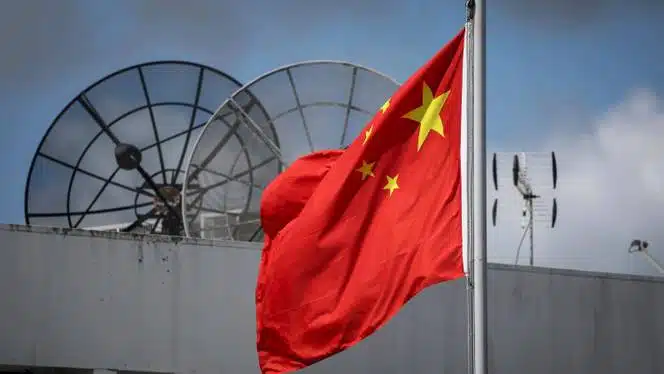The US is allegedly utilizing the FiveEyes espionage coalition “to compile and disseminate false information about threats from Chinese hackers,” according to Beijing, which says it “opposes and cracks down on all forms of cyberattacks.”
After Washington and two important allies accused Beijing of being behind a slew of hacking into lawmakers and important democratic institutions, China responded with a “strong” rebuke to the United States.
Spokesman for the Foreign Ministry Lin Jian stated on Tuesday, “China firmly opposes this, has made strong demarches with the United States and relevant parties.”
In what seemed to be a coordinated attempt to hold Beijing accountable, the United States, Britain, and New Zealand listed a number of cyber intrusions over the last ten or more years in their comprehensive public charges against China on Monday.
China responded by stating that it “opposes and cracks down on all forms of cyberattacks” and charged that the US was utilizing the FiveEyes espionage alliance “to compile and disseminate false information about threats from Chinese hackers”.
Beijing, according to him, “will take necessary measures to safeguard China’s legitimate rights and interests.”
hundreds or thousands of custom messages
A 14-year “prolific global hacking operation” aimed at assisting China’s “economic espionage and foreign intelligence objectives” was described in detail in Washington’s accusation.
On Monday, Deputy Attorney General Lisa Monaco revealed that around 10,000 emails were received throughout the campaign, which was directed at journalists, lawmakers, companies with operations both domestically and abroad, and candidates for political office.
Washington said that the attacks were carried out by a group known as APT31, characterizing it as a “cyberespionage program” managed by China’s formidable Ministry of State Security, which is based in the central city of Wuhan.
According to the Justice Department, it accused seven alleged hackers of being responsible for helping to obtain access to “email accounts, cloud storage accounts, and telephone call records” and “years” of monitoring some of these accounts.
A few hours later, London announced that the same APT31 gang had been targeting the accounts of UK MPs, many of whom had expressed disapproval of Beijing’s policies, between 2021 and 2022.
Oliver Dowden, the UK Deputy Prime Minister, also made the startling claim that “a Chinese state-affiliated entity” had probably “compromised” the nation’s Electoral Commission, with a general election in Britain scheduled to take place in a few months.
The UK has sanctioned two people and one business connected to APT31.
Additionally, New Zealand announced in a statement on Tuesday that around the same time, there had been a breach at its Parliamentary Counsel Office, which creates and disseminates laws.
Typically one of China’s most ardent supporters in the West, New Zealand, accused the Chinese “state-sponsored group” APT40 of being behind the hack.
According to Winston Peters, the foreign minister of New Zealand, ambassadors have been directed to “speak today to the Chinese Ambassador, to lay out our position and express our concerns”.
SOURCE: TRTWORLD






